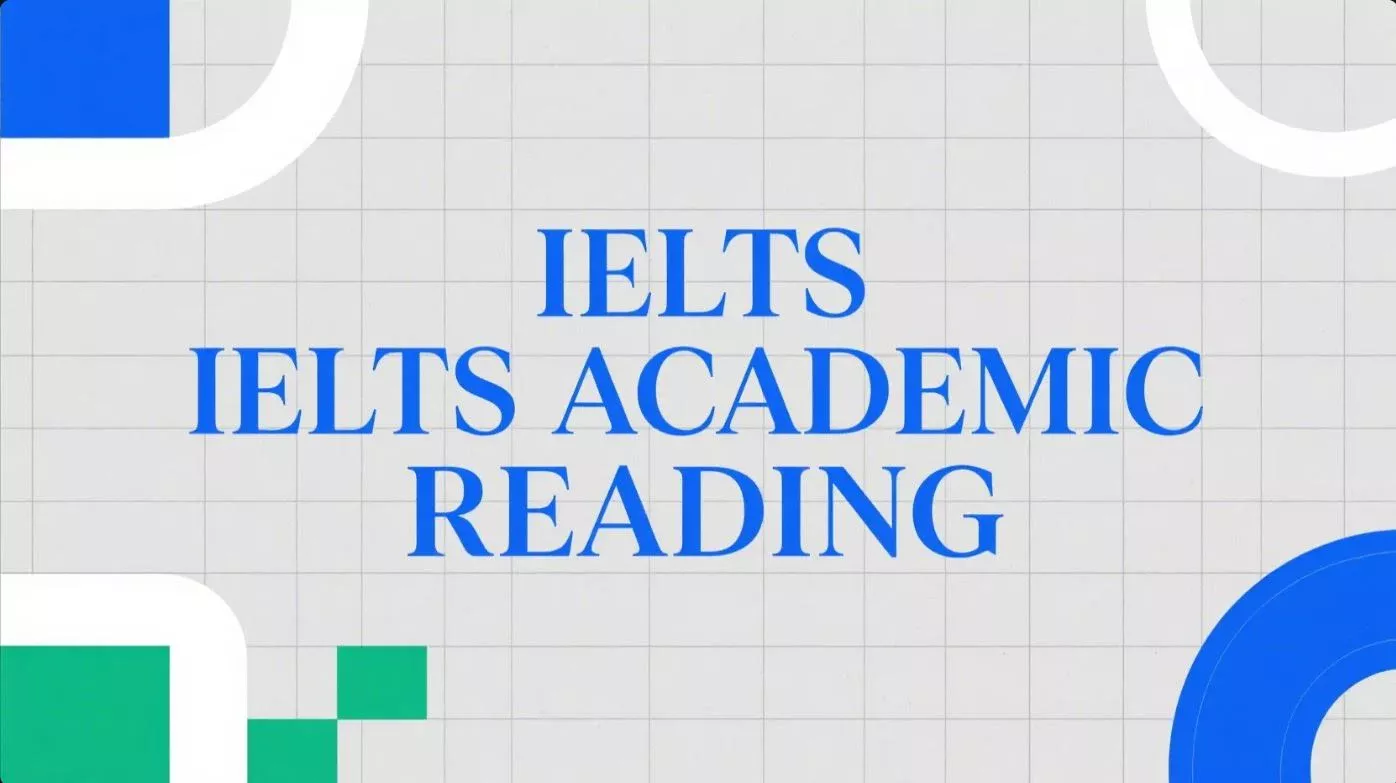Trong IELTS Writing Task 2, dạng Two-part Question Essay yêu cầu thí sinh trả lời hai câu hỏi liên quan đến một chủ đề. Giáo dục có thực sự là chìa khóa mở ra cơ hội nghề nghiệp? Ngoài giáo dục, những yếu tố nào khác ảnh hưởng đến sự thành công trong công việc?
Đề bài IELTS Writing Task 2: Tại sao giáo dục là chìa khóa mở ra cơ hội nghề nghiệp? – Two-part Question Essay
Education is often seen as the key to career success. Why is education important for employment opportunities? What can individuals do to enhance their job prospects besides formal education?
Câu trả lời 1
Essay Structure: Two-Part Question
- Introduction
- Paraphrase the statement about education and career success.
- Introduce the two aspects to be discussed: the importance of education for employment and alternative ways to improve job prospects.
- Body Paragraph 1: Why Education is Important for Employment Opportunities
- Provides Essential Knowledge and Skills: Education equips individuals with theoretical and practical knowledge required for specific fields.
- Enhances Employability and Credibility: Employers prefer candidates with formal qualifications as they demonstrate discipline and expertise.
- Opens Doors to Better Career Growth: Higher education increases the chances of promotions and professional advancement.
- Body Paragraph 2: How Individuals Can Improve Job Prospects Beyond Formal Education
- Gain Practical Experience: Internships, apprenticeships, and volunteer work provide hands-on skills.
- Develop Soft Skills: Communication, teamwork, and problem-solving abilities are highly valued by employers.
- Continuous Learning and Certifications: Online courses, workshops, and industry certifications help individuals stay competitive.
- Networking and Professional Development: Attending seminars, joining industry groups, and connecting with professionals can create job opportunities.
- Conclusion
- Summarize the key points.
- Emphasize the importance of combining education with practical skills and continuous self-improvement for career success.
Sample Essay: The Role of Education in Career Success and Alternative Ways to Improve Job Prospects
Introduction
Education is widely regarded as a crucial factor in career success, as it provides individuals with the knowledge and skills needed for employment. However, while formal education plays a significant role in securing job opportunities, there are also other ways individuals can enhance their employability. This essay will explore why education is important for employment and discuss alternative strategies for improving job prospects.
Body Paragraph 1: The Importance of Education for Employment
One of the main reasons education is essential for employment is that it provides fundamental knowledge and skills required for various professions. Careers in fields such as medicine, law, and engineering demand specialized training that can only be acquired through formal education. Additionally, having academic qualifications enhances employability, as employers tend to favor candidates with degrees, seeing them as more disciplined and capable. Furthermore, education opens doors to career growth, as individuals with higher qualifications have better chances of securing promotions and leadership positions.
Body Paragraph 2: Alternative Ways to Improve Job Prospects
Besides formal education, individuals can improve their job prospects through gaining practical experience. Internships, apprenticeships, and volunteer work allow individuals to apply their knowledge in real-world settings, making them more attractive to employers. Additionally, developing soft skills such as communication, teamwork, and adaptability can significantly improve one’s chances of success in the workplace. Moreover, continuous learning through online courses, industry certifications, and professional workshops helps individuals stay competitive in an evolving job market. Finally, networking and professional development play a vital role in career advancement, as connecting with industry experts and attending job fairs can lead to new opportunities.
Conclusion
In conclusion, education is important for employment as it provides essential knowledge, enhances credibility, and supports career growth. However, to maximize job prospects, individuals should also gain practical experience, develop soft skills, pursue continuous learning, and build professional networks. A combination of formal education and real-world experience is the most effective way to achieve long-term career success.
Câu trả lời 2
Essay:
Education is widely regarded as a crucial factor in securing employment opportunities, as it equips individuals with the necessary knowledge and qualifications for various professions. However, in today’s competitive job market, other factors also play a vital role in enhancing career prospects.
One key reason why education is important for employment is that it provides individuals with specialized skills and expertise required in many fields. Professions such as medicine, law, and engineering require extensive academic training to ensure competency. Additionally, higher education fosters critical thinking, problem-solving abilities, and communication skills, all of which are highly valued by employers. Many companies also use degrees as a screening tool, making formal education an essential requirement for securing well-paying jobs.
Despite its significance, formal education alone does not guarantee career success. Individuals can enhance their job prospects by gaining practical experience through internships, apprenticeships, and part-time jobs. Building a strong professional network is also beneficial, as connections can lead to job referrals and mentorship opportunities. Additionally, developing soft skills such as leadership, teamwork, and adaptability can set candidates apart in a competitive job market. Continuous learning, through online courses, workshops, and professional certifications, is another effective way to stay relevant in an ever-evolving workplace.
In conclusion, while education plays a fundamental role in securing employment, individuals must also focus on gaining experience, networking, and continuously upgrading their skills to maximize their career opportunities. A well-rounded approach that combines education with practical experience and adaptability is key to long-term professional success.
Câu trả lời 3
Education is indeed often seen as a key to career success, and its importance for employment opportunities is multifaceted:
- Foundational Knowledge and Skills: Education provides a structured framework for acquiring fundamental knowledge and developing essential skills, such as critical thinking, problem-solving, communication, and collaboration, which are highly valued by employers across various industries.
- Specialized Expertise: Higher education allows individuals to delve into specific fields of study, gaining specialized knowledge and expertise that are in demand in certain professions. This specialized training makes them more competitive candidates for specialized roles.
- Credibility and Signaling: Educational qualifications, like degrees and diplomas, serve as credible signals to employers, indicating a certain level of competence, commitment to learning, and ability to meet specific job requirements. They act as a valuable filter in the hiring process.
- Adaptability and Lifelong Learning: Education equips individuals with the skills and mindset needed for continuous learning and adaptation in a rapidly changing job market. It fosters the ability to acquire new skills and knowledge throughout one’s career.
- Networking and Connections: Educational institutions provide valuable opportunities for networking with professors, peers, alumni, and industry professionals, which can lead to internships, mentorship, and job prospects.
Enhancing Job Prospects Beyond Formal Education:
While formal education is a strong foundation, individuals can take several steps to further enhance their job prospects:
- Skill Development: Focus on developing in-demand skills relevant to your target industry. This can include technical skills, such as coding or data analysis, as well as soft skills, such as communication, leadership, and teamwork. Online courses, workshops, and bootcamps offer excellent opportunities for skill development.
- Gaining Practical Experience: Seek out opportunities to gain practical experience through internships, volunteer work, freelance projects, or part-time jobs. Practical experience demonstrates your ability to apply your skills in real-world settings.
- Networking and Building Relationships: Actively network with professionals in your field by attending industry events, joining professional organizations, and connecting with people on LinkedIn. Building relationships can lead to valuable insights, mentorship, and job opportunities.
- Building a Strong Online Presence: Create a professional online presence that showcases your skills and experience. A well-crafted LinkedIn profile, a personal website, or a portfolio of your work can significantly enhance your visibility to potential employers.
- Developing Strong Communication Skills: Effective communication is crucial in the workplace. Focus on improving your written and verbal communication skills, including your ability to clearly articulate your ideas, listen actively, and give persuasive presentations.
- Demonstrating a Strong Work Ethic: Cultivate a strong work ethic by being punctual, reliable, and demonstrating a commitment to excellence in your work. Employers highly value individuals who are dedicated and take initiative.
- Staying Current with Industry Trends: Keep abreast of the latest trends and developments in your target industry by reading industry publications, attending conferences, and following thought leaders on social media.
- Tailoring Your Resume and Cover Letter: Customize your resume and cover letter to each specific job application, highlighting the skills and experience that are most relevant to the position.
By combining a solid educational foundation with these additional strategies, individuals can significantly enhance their job prospects and increase their chances of career success in today’s competitive job market.
Câu trả lời 4
Introduction
Education is often regarded as the foundation of career success, as it equips individuals with knowledge, skills, and qualifications that increase employability. However, in today’s competitive job market, formal education alone may not guarantee career advancement. This essay will explore the importance of education for employment opportunities and discuss alternative strategies individuals can use to improve their job prospects.
The Importance of Education for Employment Opportunities
- Acquisition of Knowledge and Skills
Education provides individuals with specialized knowledge and technical skills required for various industries. Professions such as medicine, engineering, and finance require formal training that can only be obtained through structured education. - Higher Employability and Job Security
Employers often prefer candidates with degrees or certifications, as formal education demonstrates a person’s ability to learn, think critically, and solve problems. Degree holders typically have access to a wider range of job opportunities and greater job stability. - Increased Earning Potential
Numerous studies indicate that individuals with higher education levels earn more over their lifetime compared to those without formal qualifications. Higher education opens doors to well-paying jobs and career advancement. - Development of Soft Skills
In addition to technical expertise, education fosters essential soft skills such as communication, teamwork, time management, and leadership, all of which are highly valued in the workplace. - Networking and Professional Connections
Universities and educational institutions provide opportunities to build networks with professors, peers, and industry professionals, which can lead to job referrals, mentorship, and career growth.
Alternative Strategies to Enhance Job Prospects
- Gaining Practical Experience
Internships, apprenticeships, and volunteer work allow individuals to gain hands-on experience and apply theoretical knowledge in real-world settings, making them more attractive to employers. - Developing Technical and Digital Skills
In the modern job market, proficiency in digital tools, programming, data analysis, and other technical skills can significantly boost employability. Online courses and certifications in these areas can enhance job prospects. - Continuous Learning and Upskilling
With industries evolving rapidly, lifelong learning is essential. Individuals should seek professional development through online courses, workshops, and industry certifications to stay competitive. - Building a Strong Professional Network
Attending industry events, joining professional associations, and leveraging platforms like LinkedIn can help individuals connect with potential employers and discover job opportunities. - Enhancing Soft Skills and Personal Branding
Employers value candidates with strong interpersonal skills, adaptability, and problem-solving abilities. Building a personal brand through blogging, social media, and showcasing expertise in a field can also attract job opportunities. - Exploring Entrepreneurship and Freelancing
Instead of relying solely on traditional employment, individuals can create their own job opportunities by starting businesses, freelancing, or offering specialized services based on their skills.
Conclusion
While education is a crucial factor in securing employment, it is not the only determinant of career success. Practical experience, technical skills, continuous learning, networking, and personal branding all play vital roles in enhancing job prospects. By combining formal education with these strategies, individuals can maximize their career opportunities and adapt to an ever-changing job market.
Câu trả lời 5
Introduction
Education is often considered the key to career success because it provides individuals with knowledge, skills, and qualifications that improve their employability. However, in today’s competitive job market, formal education alone may not be enough. This essay will discuss why education is important for employment opportunities and explore additional ways individuals can enhance their job prospects.
Why Education is Important for Employment Opportunities
- Provides Essential Knowledge and Skills:
- Education helps individuals gain expertise in specific fields, such as medicine, engineering, and finance.
- It also develops critical thinking, problem-solving, and analytical skills that are valuable in any profession.
- Increases Employability and Job Security:
- Many employers require a minimum level of education for job eligibility.
- Higher education qualifications make candidates more competitive in the job market and provide job stability.
- Opens Doors to Higher-Paying Jobs:
- Individuals with higher education degrees generally have better salary prospects.
- Specialized fields, such as technology and healthcare, often require advanced education for career advancement.
- Enhances Career Growth and Networking Opportunities:
- Universities and colleges provide opportunities to connect with professionals, mentors, and peers.
- Internships and industry projects help students gain real-world experience and career guidance.
Ways to Enhance Job Prospects Besides Formal Education
- Gaining Practical Experience:
- Internships, apprenticeships, and part-time jobs provide hands-on experience that employers value.
- Volunteering in relevant industries can also help build skills and connections.
- Developing Technical and Soft Skills:
- Learning additional skills, such as coding, digital marketing, or project management, can increase employability.
- Soft skills like communication, teamwork, and leadership are crucial for career growth.
- Pursuing Certifications and Online Courses:
- Platforms like Coursera, Udemy, and LinkedIn Learning offer industry-recognized certifications.
- Short-term courses in high-demand fields, such as data analysis or cybersecurity, can boost job prospects.
- Building a Strong Professional Network:
- Networking through LinkedIn, attending industry events, and joining professional groups can lead to job opportunities.
- Connecting with mentors and professionals in a chosen field can provide career guidance.
- Staying Adaptable and Open to Learning:
- The job market is constantly evolving, so individuals should stay updated with industry trends.
- Being open to new opportunities and career shifts can lead to better job prospects.
Conclusion
While education is essential for employment opportunities, it is not the only factor in career success. Practical experience, skill development, networking, and adaptability are equally important. A combination of formal education and continuous self-improvement will help individuals secure better job prospects and long-term career growth.
Câu trả lời 6
Education is widely regarded as the key to career success, as it provides individuals with knowledge, skills, and qualifications that improve employability. However, in today’s competitive job market, formal education alone may not be sufficient. This essay will explore why education is important for employment opportunities and discuss additional strategies individuals can use to enhance their job prospects.
Why Education is Important for Employment Opportunities
- Acquisition of Knowledge and Skills
Education equips individuals with subject-specific expertise and technical skills required for various careers. Professions such as medicine, law, and engineering rely heavily on academic training to ensure competence and safety. - Increased Employability and Job Market Competitiveness
Employers often prioritize candidates with formal education because it demonstrates critical thinking, problem-solving abilities, and discipline. A degree or certification can serve as a benchmark for assessing an applicant’s qualifications. - Higher Earning Potential and Career Growth
Statistics show that individuals with higher education degrees tend to earn more than those without. Many high-paying jobs require a minimum level of education, and advanced qualifications open doors to leadership roles and career progression.
How Individuals Can Enhance Their Job Prospects Besides Formal Education
- Gaining Practical Experience
Internships, part-time jobs, and volunteer work provide hands-on experience and help individuals develop workplace skills that employers value. - Developing Soft Skills
Communication, teamwork, adaptability, and leadership are crucial for career success. Individuals can improve these skills through extracurricular activities, online courses, or self-development programs. - Learning New Technologies and Industry Trends
The job market is constantly evolving, and staying updated with industry trends can be beneficial. Enrolling in online courses, attending workshops, and obtaining professional certifications help individuals stay competitive. - Networking and Professional Development
Building relationships with industry professionals through networking events, social media (e.g., LinkedIn), and mentorship programs can lead to job opportunities and career guidance.
Conclusion
While education is a crucial foundation for career success, individuals must also develop practical experience, soft skills, and industry knowledge to enhance their job prospects. A combination of formal education and continuous self-improvement is the most effective strategy for achieving long-term career success.
Câu trả lời 7
Introduction
Education is widely regarded as a crucial factor in securing employment and achieving career success. It provides individuals with essential knowledge, skills, and qualifications that make them more competitive in the job market. However, besides formal education, there are various ways individuals can improve their employability. This essay will discuss the importance of education for employment and explore additional strategies to enhance job prospects.
The Importance of Education for Employment Opportunities
- Acquisition of Knowledge and Technical Skills
Education equips individuals with specialized knowledge and technical skills necessary for various professions. Fields such as medicine, engineering, and law require formal academic training to ensure competence and professional credibility. - Higher Employability and Job Security
Employers often prioritize candidates with educational qualifications as they demonstrate expertise and commitment. A degree or certification acts as a benchmark for assessing job applicants, giving them a competitive edge in the labor market. Moreover, educated individuals generally experience greater job stability and lower unemployment rates. - Better Career Advancement and Earning Potential
Higher education is associated with greater earning potential and career progression. Many companies prefer promoting employees who possess advanced degrees or specialized training, as they are seen as more knowledgeable and capable of handling leadership roles. - Development of Soft Skills
Education also fosters critical thinking, problem-solving abilities, and communication skills, which are highly valued in professional settings. These skills help individuals adapt to workplace challenges and excel in their careers.
Ways to Enhance Job Prospects Besides Formal Education
- Gaining Practical Experience
Employers highly value hands-on experience, which can be obtained through internships, apprenticeships, or volunteer work. Real-world exposure helps individuals develop industry-specific skills and build a strong professional network. - Developing In-Demand Skills
Acquiring additional skills, such as digital literacy, data analysis, or project management, can enhance employability. Many online platforms offer courses and certifications that allow individuals to develop new competencies relevant to their career goals. - Networking and Professional Development
Building connections within an industry can open doors to job opportunities. Attending seminars, workshops, and networking events helps individuals interact with professionals and potential employers, increasing their chances of securing employment. - Personal Branding and Online Presence
A strong professional profile on platforms like LinkedIn can help job seekers stand out. Showcasing skills, achievements, and projects online increases visibility and attracts potential employers. - Continuous Learning and Adaptability
In today’s rapidly evolving job market, individuals should embrace lifelong learning. Keeping up with industry trends, attending training programs, and staying updated with new technologies ensure long-term career growth.
Conclusion
While education plays a vital role in securing employment by providing knowledge, skills, and credentials, individuals can further enhance their job prospects through practical experience, skill development, networking, and continuous learning. A well-rounded approach that combines education with real-world experience and adaptability is the key to long-term career success.
Câu trả lời 8
Education is widely considered a crucial factor in securing employment opportunities, as it equips individuals with knowledge, skills, and qualifications required by employers. However, in today’s competitive job market, formal education alone may not be sufficient. This essay will discuss why education is important for employment and explore additional ways individuals can enhance their job prospects.
Why Education is Important for Employment Opportunities
One of the primary reasons education is essential for employment is that it provides specialized knowledge and technical skills. Many professions, such as medicine, engineering, and law, require formal training and certifications. Without a degree or relevant qualifications, individuals may not be eligible for high-paying and stable jobs.
Additionally, education develops critical thinking, problem-solving, and communication skills, which are highly valued in the workplace. Employers seek candidates who can analyze complex situations, make informed decisions, and collaborate effectively with colleagues. These skills are often cultivated through academic learning and research.
Another key factor is that education increases employability and earning potential. Studies show that individuals with higher education qualifications tend to secure better-paying jobs and have more career advancement opportunities. Employers view degrees as proof of dedication, discipline, and the ability to learn, making graduates more competitive in the job market.
How Individuals Can Enhance Their Job Prospects Besides Formal Education
While formal education is important, individuals can improve their employability through various alternative methods:
- Gaining Practical Experience – Internships, part-time jobs, and volunteering provide hands-on experience and help individuals apply theoretical knowledge in real-world situations. Employers often prefer candidates with relevant work experience.
- Developing Soft Skills – Strong communication, leadership, adaptability, and teamwork skills are essential in most professions. Engaging in extracurricular activities, public speaking, and team projects can help individuals build these skills.
- Learning New Skills and Certifications – Online courses, workshops, and vocational training programs allow individuals to acquire industry-specific skills. Certifications in areas such as digital marketing, programming, or project management can make job seekers more attractive to employers.
- Networking and Professional Connections – Building relationships with professionals in the industry can lead to job opportunities. Attending career fairs, joining professional organizations, and connecting with industry experts on platforms like LinkedIn can enhance job prospects.
- Staying Updated with Industry Trends – The job market is constantly evolving due to technological advancements. Keeping up with industry trends, attending seminars, and continuously improving skills can help individuals remain competitive.
Conclusion
In conclusion, education plays a vital role in securing employment by providing knowledge, skills, and qualifications. However, individuals can further improve their job prospects by gaining practical experience, developing soft skills, obtaining additional certifications, networking, and staying updated with industry trends. A combination of formal education and continuous skill development is key to career success in today’s dynamic job market.















